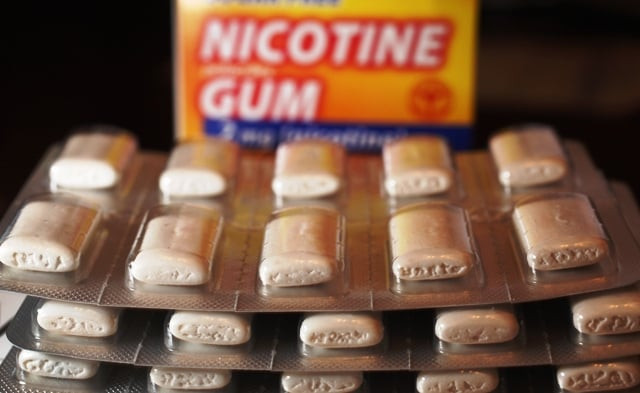Nicotine therapy doesn't help smokers quit: Report
Study participants were surveyed over three time periods: 2001-2002, 2003-2004, and 2005-2006.

The research by the Harvard University School of Public Health followed 787 adults in the state of Massachusetts who had recently quit smoking, and found that over time just as many relapsed after nicotine replacement therapy (NRT) as without -- about a third.
"This study shows that using NRT is no more effective in helping people stop smoking cigarettes in the long term than trying to quit on one's own," said lead author Hillel Alpert, a research scientist at Harvard.
Study participants were surveyed over three time periods: 2001-2002, 2003-2004, and 2005-2006.
Not only were relapse rates about the same among those who used NRT and those who did not, the study found that heavily dependent smokers who took NRT without professional therapy were twice as likely to relapse as those who did not use NRT.
"This may indicate that some heavily dependent smokers perceive NRT as a sort of 'magic' pill, and upon realizing it is not, they find themselves without support in their quitting efforts, doomed to failure," said the study in the journal Tobacco Control.
Although previous randomized controlled studies have shown NRT to be effective in helping smokers quit, the latest research shows the weakness of those trials among the general population in a real-life setting, the authors argued.
The study also showed that very few people follow the recommendations of using NRT for eight weeks, with many opting for shorter periods of use.
The NRT industry has boomed since nicotine gum was first introduced in 1984, according to background information in the article. Back then, NRT products were a $45 million industry in the United States.
Since over-the-counter sales of NRT were approved in 1996, the industry has boomed to $800 million per year. On top of that, sales of prescription drugs to stop smoking reached $841 million dollars in 2007.
More public funds are also helping to subsidize stop-smoking therapies to low-income Americans, with 39 state Medicaid programs covering one or more kinds of NRT in 2011, compared to 17 states in 1996.
Meanwhile, rates of smoking in the United States have leveled off at about 20 percent of the population in the past five years after a steady period of decline.
"What this study shows is the need for the Food and Drug Administration... to approve only medications that have been proven to be effective in helping smokers quit in the long-term and to lower nicotine in order to reduce the addictiveness of cigarettes," said co-author Gregory Connolly, director of Harvard's Center for Global Tobacco Control.



















COMMENTS
Comments are moderated and generally will be posted if they are on-topic and not abusive.
For more information, please see our Comments FAQ